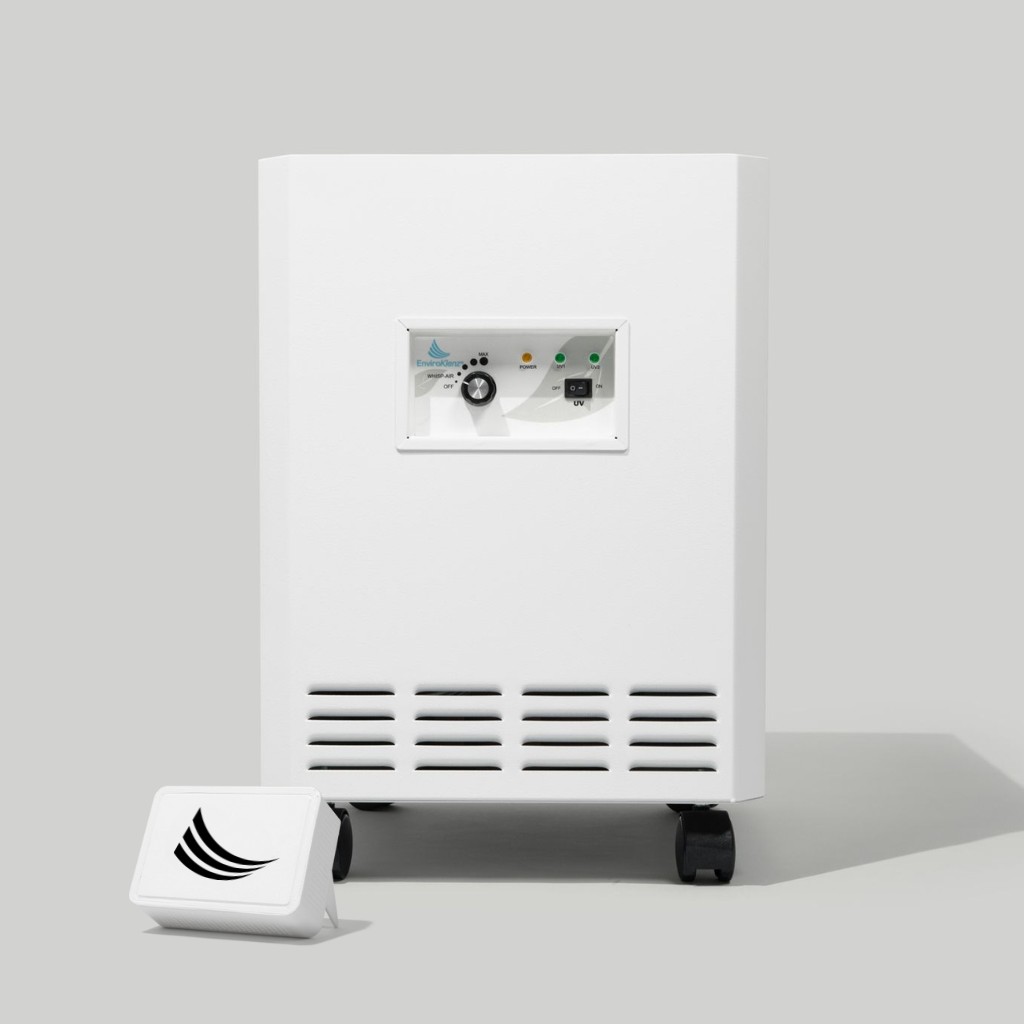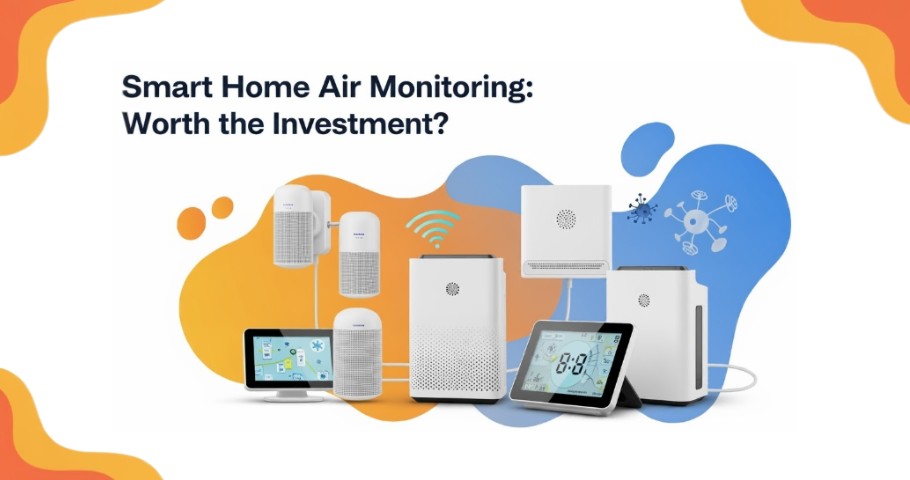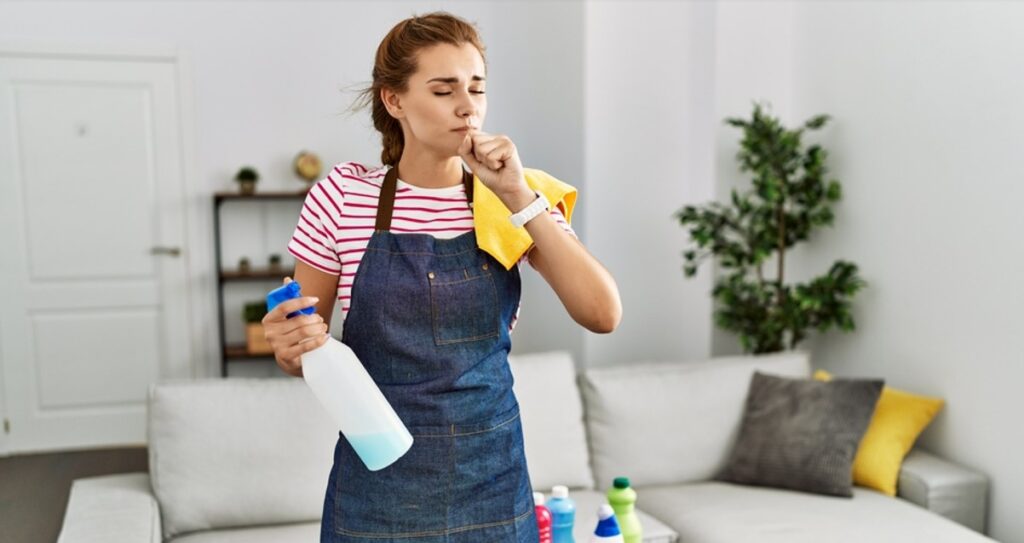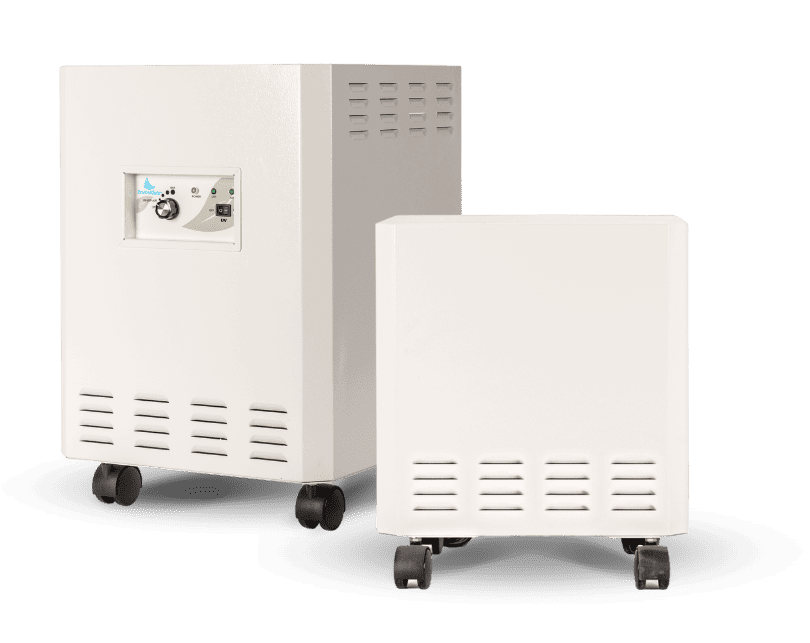From colognes and perfumes to cleaning agents, household products, and everything in between, fragrances have made their way into our daily lives. While they give off nice smells, fragrances can trigger allergic reactions in some people.
You might have a fragrance allergy if you experience uncomfortable symptoms after coming in contact with scented substances.
Although this allergy is rarely life-threatening, continuous exposure to fragrance allergens can lead to chronic dermatitis.
This quick article looks at fragrance allergy and shares coping tips for sufferers.
What Is Fragrance Allergy?
In simple terms, fragrance or perfume allergy is a body-wide immune system response to a substance containing a fragrance chemical or allergen.
A 2009 survey shows that over 30% of the population in the US experience allergic reactions to fragranced products. This is especially the case for asthmatics and people with respiratory problems.
Many daily-use products, including perfumes, contain chemicals that can trigger allergic reactions. Unfortunately, fragrance manufacturers aren’t mandated to list all the chemicals used in making their perfumes on the product packaging.
In other words, a product may have “fragrance” listed as an ingredient on its label, but that’s a clever way to hide the individual chemicals.
If you are sensitive to allergens, using perfumes and other scented products can increase your chances of experiencing allergic reactions. That’s because fragrance allergens are airborne and can lead to poor air quality.
Fragrance Allergy Versus Perfume Sensitivity
You are necessarily allergic to fragrance just because you sneezed a few times when someone sprayed perfume near you or got a whiff of deodorizer. In many cases, sneezing, an itchy nose, or watery eyes are indications of perfume sensitivity.
These mild reactions are your body’s way of eliminating the irritant, allowing your bodily functions to return to normal.
A body-wide response is what differentiates fragrance allergy from perfume sensitivity, and we’ll cover the symptoms of the former in a bit.
In the meantime, fragrance sensitivity often presents milder symptoms, such as:
- Stuffy, runny, and itchy nose
- Itchy and watery eyes
- Nausea and headache
- Sneezing when you come in contact with perfume
Symptoms of Fragrance Allergy
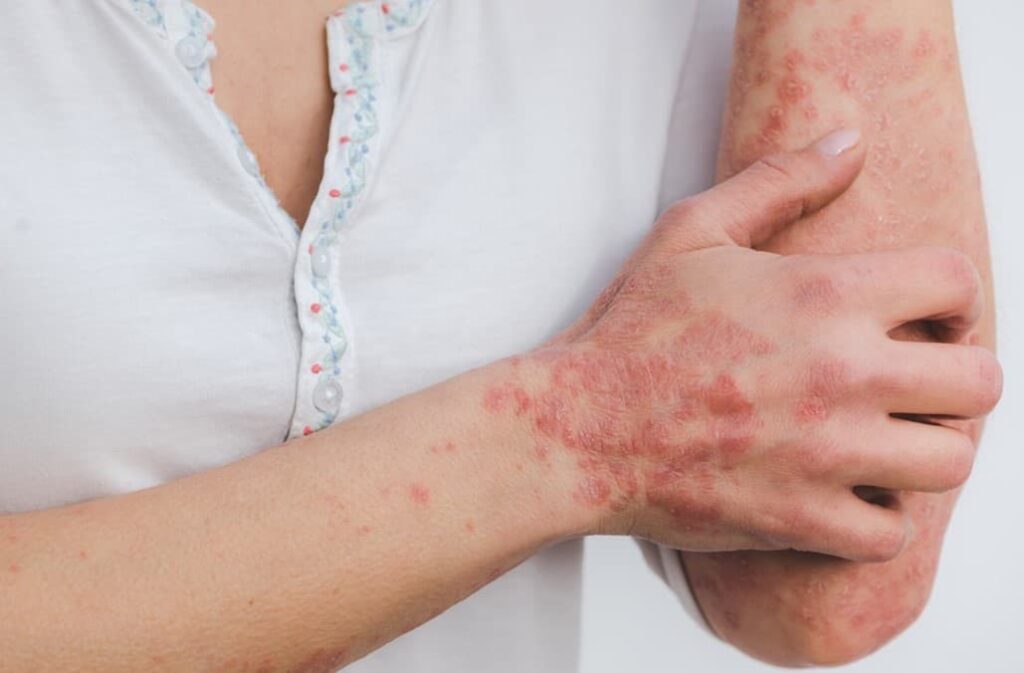
Exposure to substances containing fragrance allergens can cause skin irritation if you are allergic to fragrance. These irritations often present as streaky patterns in different parts of the body.
The face, hands, and lower legs are commonly affected in men, and women often experience irritations on the face, neck, and hands.
Irritations can also occur in the armpit and sometimes around the perianal region in both men and women, especially if a fragranced wet wipe or toilet paper is used.
It is also common to experience mild symptoms, such as:
- Dry or scaly skin
- Skin itchiness (without visible irritations or rash)
- Stinging or burning sensations on the skin (without visible sores or irritations)
- Abnormal sensitivity to sunlight
- Reddish or patchy skin
- Itchiness around the throat and eyes
- Pus-filled blisters
Severe symptoms of fragrance or perfume allergies are extremely rare but can occur with prolonged exposure to fragrance allergens. It is important to seek immediate medical attention if you notice any of the following serious symptoms:
- Inflammation of the airways (known as anaphylaxis). This allergic reaction is potentially fatal because it blocks the airways, making breathing difficult.
- Swelling in the tongue, lips, and mouth. This makes eating and talking difficult, and breathing is sometimes restricted.
Coping Tips
Staying away from substances containing fragrance is the most effective way to avoid triggering sensitivities or allergies. Try to find out the specific allergen you are allergic to and avoid buying any product that contains the substance.
Consider using only fragrance-free laundry products, as well as scent-free cleaning agents, to minimize your exposure to fragrance allergens. Use air purifiers to clean the air around you, especially when you spend time in indoor environments.
If you live with other people in your household, tell them about your allergies so that they can avoid your triggers. And if possible, avoid places where people wear perfumes. Talking with your employer about making your work environment scent-free is also a good idea.
Common Sources of Fragrance Allergies
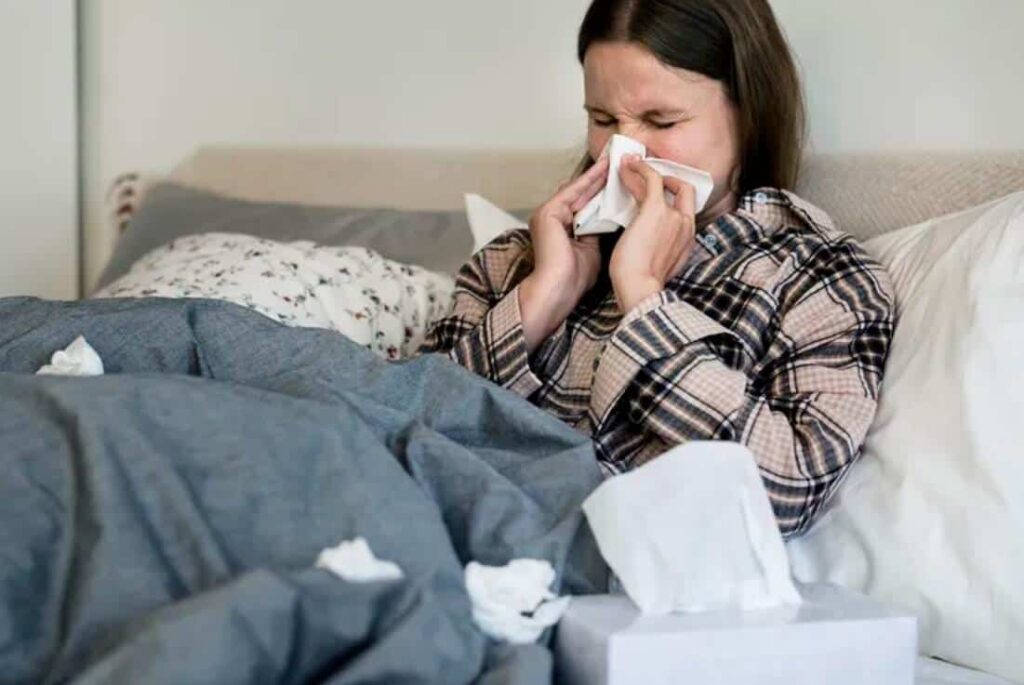
Although you can reduce symptoms by using fragrance-free products, avoiding all fragrances and fragrance additives is almost impossible.
Keep in mind that perfumes and cosmetics aren’t the only fragrance-containing products. Natural and synthetic fragrances are found in a wide range of products, including:
- Household products like cleaning agents, laundry detergents, toilet paper, air fresheners, fabric softeners, potpourri, and candles.
- Personal care products, including lotions, perfumes, colognes, shampoos and conditioners, sanitary pads, aftershave, deodorants, moisturizers, body wash, and baby wipes.
- Flavors added to foods and drinks.
- Flavors added to toothpaste, lip balms, lipsticks, and electronic cigarettes.
- Scented natural oils for massages and aromatherapy, topical balms, medicaments, and other quick-relief substances used in therapy.
To make things worse, you don’t have to use any of these products directly to trigger an allergic reaction. You could develop consort allergic contact dermatitis by exposure to irritants or allergens emanating from someone else.
In other words, an allergic reaction can be triggered by simply coming in contact with another person who uses a fragranced product.
What You Can Do About Fragrance Allergy
Considering the impracticality of total fragrance avoidance, what is the most effective solution for preventing allergic reactions? What can you do to reduce fragrance allergy symptoms?
It all comes down to staying on top of air quality, especially in confined spaces like your home and workplace. Consider installing air purifiers to remove airborne allergens from your living environment.
We highly recommend the EnviroKlenz Air Systems for premium air purification in all indoor spaces. Using medical-grade filtration systems and patented earth mineral technology, these air purification systems capture and eliminate airborne allergens, microscopic pathogens, VOCs, chemicals, and other air pollutants that can trigger allergies and sensitivities.
Fragrance allergy may not be curable, but you can avoid triggers by staying away from scented products and cleaning the air around you using air cleaning solutions.
EnviroKlenz® Medical Disclaimer:
“Any information that is provided on this website is not for the use by any commercial or personal entity without expressed written consent of the blog author. The material and statements illustrated within this blog are not intended to diagnose, treat, cure, or prevent any diseases or medical conditions. Nor does the author in any way guarantee or validate the validity, totality, or efficacy of any claims and will therefore not be held responsible for the content of any claims. Always consult your medical physician for any specific medical advice or recommendations.”




